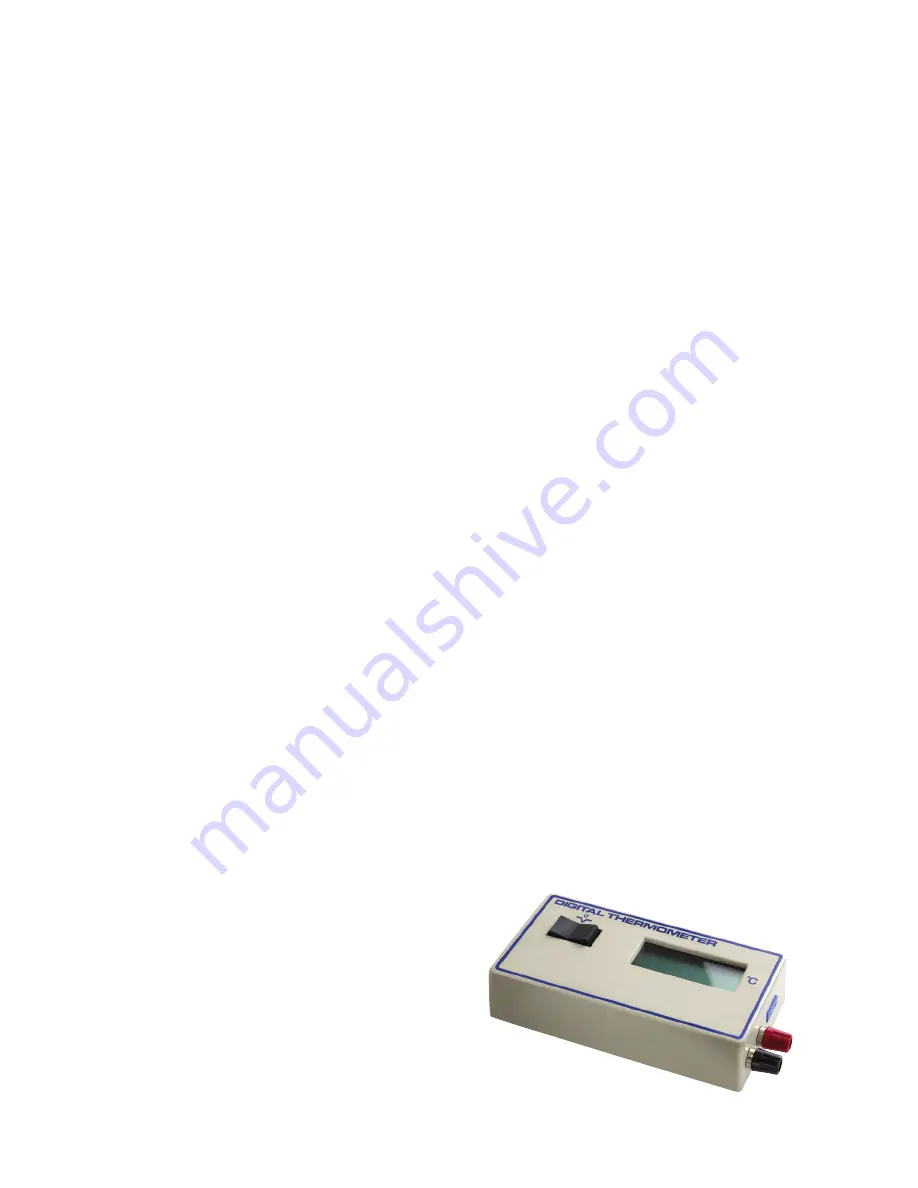
10
GETTING STARTED
u
npacking
a
new
sensor
When receiving a new microsensor remove the shock-absorbing
grey plastic net .
Please do not remove the seal and protective
tube before the following steps are successfully completed.
c
onnecT
The
TemperaTure
sensor
Connect the Unisense temperature microsensor to the input
terminal of the T301 or the Microsensor Multimeter or Monometer .
c
alibraTion
Without calibration, the Unisense temperature sensor in
combination with the Unisense T301 thermometer has a precision
of ±1
o
C . To verify the function and/or to achieve an even better
precision (down to ±0 .1
o
C), perform the following calibration
procedure: Prepare two solutions with well defined temperature,
one slightly above and one slightly below the temperature range
in which the measurements are expected to be performed .
To ensure that the calibration temperatures are well-defined,
use for instance boiling water versus ice-water, or monitor the
temperature of the solutions with an independent thermometer
with a better precision than 1
o
C .
Microsensor Multimeter/Monometer: Perform the calibrations in
the software . Please consult the relevant software manual .
T301: If the display of the T301 deviates from the independent
thermometer, you can correct subsequent measurements by
adding the difference to the display value .
WARNING
Do not remove
seal and protective
plastic tube before
the following steps
are successfully
completed.
The Unisense T301 thermocouple
meter which is used for the TP-MR and
TP200 temperature microsensors.
Summary of Contents for TP-MR
Page 1: ...1 TEMPERATURE SENSOR USER MANUAL ...
Page 2: ...Temperature sensor user manual Copyright 2012 Unisense A S Version October 2012 ...
Page 3: ...TEMPERATURE SENSOR USER MANUAL UNISENSE A S ...
Page 4: ......
Page 15: ......
Page 16: ...UNISENSE DENMARK www unisense com info unisense com ...


































